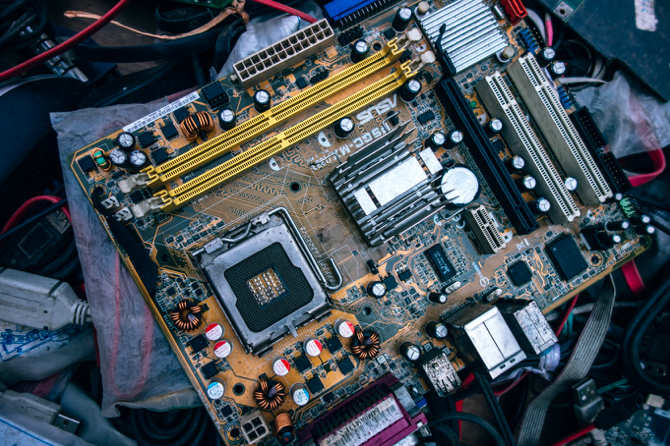It is widely known that about 90% of e-waste ends up in a landfill. That is ecologically dangerous, irresponsible and wasteful.
Eco IT Solutions, one of the major APAC “end of life/lease” (EOL) IT specialists, has established a joint venture (JV) in Australia to bring its best practice here — reuse, repurpose and recycle — to show that there is still value in superseded computing, networking, and communications hardware.
Dean Michael is the local partner and manager of the JV that has the backing of ex OEM & major reseller employees to make this work.
The remainder of the interview is given below as a Q and A.
There are many companies offering EOL services – what’s different about Eco IT Solutions?
We have a 360° view of a customer’s needs – not just the disposal of EOL computing. Our main motivators are to help customers comply with the European Waste Electronic and Electrical Equipment (WEEE) directive and the 1998 Data Protection Act – or their Aussie equivalents.
For starters, we do not just buy back EOL equipment. Many other companies offer that service, so we have to be different. Where we are better is that we have access to many more markets for refurbished and repurposed equipment – Europe, US, BRIC countries, South Africa, and Australia. Because of that, a lot less is going to end up in the waste stream. A lot more is reused, and that’s good for everyone.
While the economy of scale is in handling multiple units we will also look at smaller quantities – anything to keep it out of eBay or auction houses.
Surely the challenge is to put a fair price on the equipment – that must be risky?
The general “industry” rule is that EOL — say a three-year-old lease expiry — is worth around the same as the payout residual, say 10%. Then you have decommissioning costs, data migration, data erasure, packing, and shipping – all before it reaches us. The buy-back price helps the client cover those “hidden” disposal costs and often very much more.
Optionally you can ask us to handle it on consignment which may bring in even higher values for when we can find a new buyer.
Because we have access to larger global markets we may have buyers for say, old UC systems, or to those who want used workstations to cost-effectively extend the life of an installation – we often can offer more than straight “second-hand merchants”.
Isn’t labour your biggest cost?
Yes, the cost of testing, data erasure, reinstallation and ensuring tech stuff works before resale is costly. But that is our responsibility – not the client who has sold it. We have to warrant goods – usually for a year – as fit for purpose, so it is our risk if warranty return rates increase (we target for less than 5%) or we simply get stuck with unsaleable lemons. And there are issues with software licences where a used PC is worth less than the cost of an operating system or the productivity software installed on it.
You seem focused on refurbishment as a way to avoid e-waste?
It’s a tragedy that EOL cycles so heavily influence equipment replacement. A three-to-five-year-old PC or notebook has a lot of life left in it especially if you add more memory or upgrade hard disk space. Some businesses can’t afford ‘new’ and would rather pay a few hundred dollars for a great used commercial-grade machine than use cheap white box clones.
Then there is a demand from larger companies wanting to maintain existing equipment – IT Lifecycle extension.
We are finding that there is a burgeoning market in ‘spares’ – just like an automotive wrecker. Tried buying DDR 2 ram lately, or a smaller hard disk that works with an older BIOS, or want to match an older UC handset?
All this is better than shipping it off to an auction house or landfill – refurb/re-use/repurpose creates the maximum value for all.
When we have to scrap things it is done 100% to the ISO process, and best practice means all metals and plastics are recycled – there is little e-waste.
Where are your clients coming from – this is a young business?
Global referral from repeat customers is a start. Burning shoe leather works also. But it’s amazing how quickly we have cemented our reputation here and are getting more calls from finance providers, major ASX companies, government, and education. Even small business is catered for.
So ends an interview with what could be best described as a human dynamo – this Millennial is tech-savvy, totally focused, highly efficient, and will succeed.
Eco IT Solutions’ Sydney office is at 11 York St, Sydney, email info@ecoitsolutions.com
My take is that this company, its international backing and systems, and its local manager have long-term ‘legs’.
Article originally featured in ITWire magazine.
Written by Raw Shaw

